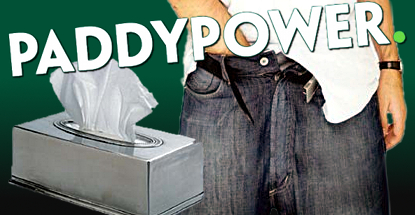 Irish bookmakers Paddy Power have been accused of encouraging ethnic minorities to use the fixed-odds betting terminals (FOBT) in the company’s betting shops.
Irish bookmakers Paddy Power have been accused of encouraging ethnic minorities to use the fixed-odds betting terminals (FOBT) in the company’s betting shops.
The Campaign For Fairer Gambling (CFG) – aka the bureau of suspect statistics – says its research shows 61% of Paddy’s UK betting shops are located in areas with “above average levels” of residents born outside the UK. CFG consultant Adrian Parkinson says the figures make it “blatantly clear” that Paddy’s strategy is to target areas with “a high number of ethnic minorities, particularly Asian and Chinese.”
A Paddy Power spokesman told the Independent that the company didn’t “target areas based on ethnicity.” Paddy has comparatively few shops compared to retail giants like Coral, Ladbrokes and William Hill and thus the company has opted to place its shops in “urban areas with dense populations.” Paddy insists that “like every other retailer, our shops are located where there is high demand for our services.”
Or just some seriously horny people. In a debate in the UK’s House of Lords on Tuesday, Labour’s Lord Lipsey offered a “rather racy analogy” comparing FOBT use to masturbation. Lipsey claimed betting on a horse race represented “the full sexual intercourse of betting and gambling, with foreplay when you select your horse and mounting excitement as the race goes on – we know what happens after that, when the result comes.” (Emphasis added.)
By comparison, Lipsey said betting shops were full of “sad-eyed blokes – it is always blokes – in front of porn-like machines … shoving in pounds for momentary pleasure.” However, while Lipsey admitted that he was “not very fond” of FOBTs, he has no desire to ban their use, saying if people want to whip their skippy in this fashion, “that is their affair.”
As for the prevalence of betting shops in certain areas, Lipsey said that’s because “no one else wants the premises.” Lipsey said people were “deluding themselves” if they thought a crackdown on betting shops would mean the return of the vanished high street brands. Lipsey said he preferred “well maintained betting shops than ill maintained, ramshackle, empty shops that are falling down.”
